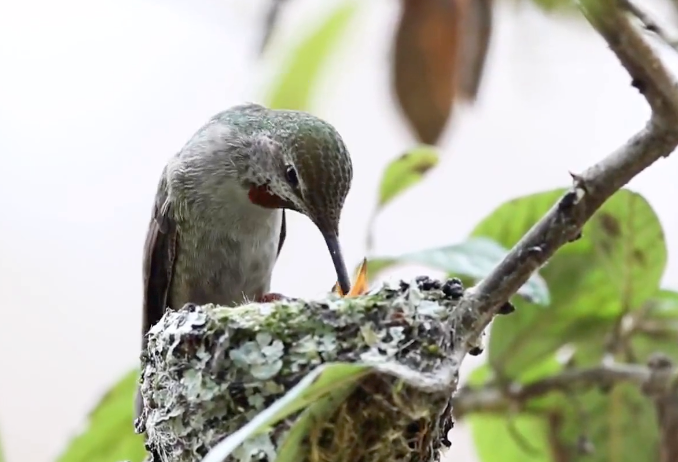Tri-City songbirds are under threat from human disturbance and advocates are warning people to look for nests before they prune, garden or renovate their property.
In recent months, the Wildlife Rescue Association of B.C. has seen a dramatic increase in the number of injured and weakened birds being brought to their rehabilitation centre in Burnaby.
Most of the tiny creatures are from nests found in Coquitlam, Port Coquitlam and Port Moody.
In many cases, the nests have been dislodged, although occasionally fledgling birds are brought in if they are injured and found on the ground.
As many as six hummingbirds from the Tri-Cities area have been brought in, according to hospital manager Janelle Stephenson, but the facility is also taking area of numerous perching birds, including song sparrows, robins and chickadees, as well as baby ducklings.
See video at bottom of story.
“There are manly juveniles coming in,” said Stephenson, “a few more are coming in every day.”
Since April 2020, and possibly because people are more homebound during COVID-19, the wildlife rescue centre has seen admissions jump by 74% — an increase of 500 more animals who need help.
According to the association, bird nesting season — March 1 to Aug. 31 — is an extremely challenging time for baby birds who are facing natural and human disturbances or lack of food sources. Without proper care and nutrition, nestlings and fledglings face challenges in their environment including predator attacks, starvation, and death.
Some indications of distress in birds on the ground includes:
- weakness/lethargy,
- soiling (with feces or anything else)
- visible injuries such as blood or a drooping wing
CALL THE WILDLIFE RESCUE HELPLINE IF YOU HAVE DISTURBED A BIRD NEST
Concern was recently raised when Trans Mountain was ordered to delay pipeline construction in Burnaby because of nests being disturbed, including those of Anna's hummingbirds.
But Stephenson said homeowners working in their yards or around the house and contractors doing construction may accidentally knock down a nest while doing work, such as pruning or chimney cleaning.
Parents may abandon a nest of baby birds that has been disturbed, so Stephenson is urging people to call the rescue hotline (604-526-7275) before taking any action.
“The majority are accidental nest removals; people are cutting down a tree, or a shrub or doing gardening or construction and they don’t realize they’re near a nest. Sometimes the nest is so small you can’t see it and they find it in a branch afterwards.”
Hummingbird nests, for example, are extremely tiny and could be knocked down without anyone knowing.
But different species have different nesting habits, and Stephenson advises looking closely in deep grass, eaves, chimneys, bushes and trees before doing major work, and calling the helpline for solutions.
DON’T MOVE A NEST OR A BABY BIRD WITHOUT EXPERT ADVICE
If you have disturbed a nest, Stephenson recommends calling the rescue hotline for advice on what to do next. It may be possible to put the nest back, but then it has to be monitored to ensure parents will come back and feed the fledglings.
“It’s better to call us and we’ll walk you through to help you monitor,” said Stephenson, noting that baby birds may be under stress and the nest may have to be brought in so the birds can be rehydrated or helped with their injuries.
It’s not unusual for baby bird to land on the ground when learning to fly; they can be grounded for days or weeks while their feathers grow, depending on the species. If the bird appears healthy, has most of its feathers and the parents are returning to feed it, no intervention is required.
However, if the bird appears lethargic, injured, and feathers are patchy, a call to the wildlife rescue is a good idea to figure out next steps, especially if a predator is nearby. (Cats and dogs should also be kept away)
A trained volunteer may recommend retrieval, and transport to the Burnaby facility, where the creature will receive almost ‘round the clock care, with feeding as frequent as every 15 minutes, depending on the species.
A donation to the rescue agency would help with the animals’ care, and ensure found fledgling birds get off to a good start, Stephenson noted, while she advised homeowners, contractors and property managers to take extra care to look for bird nests before they start their work.
“Call, ask questions, some animals are quite hidden,’ suggested Stephenson, “We have people on the help-line to help you assess the situation, figure out what the situation is and depending on the species will give you appropriate advice.”




